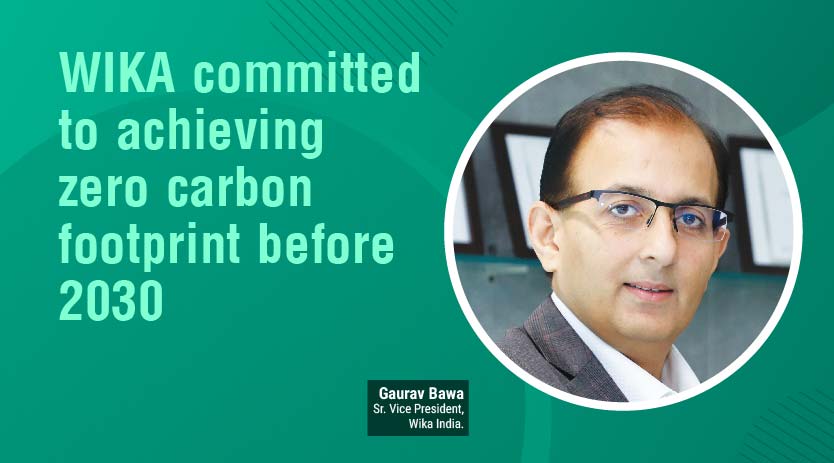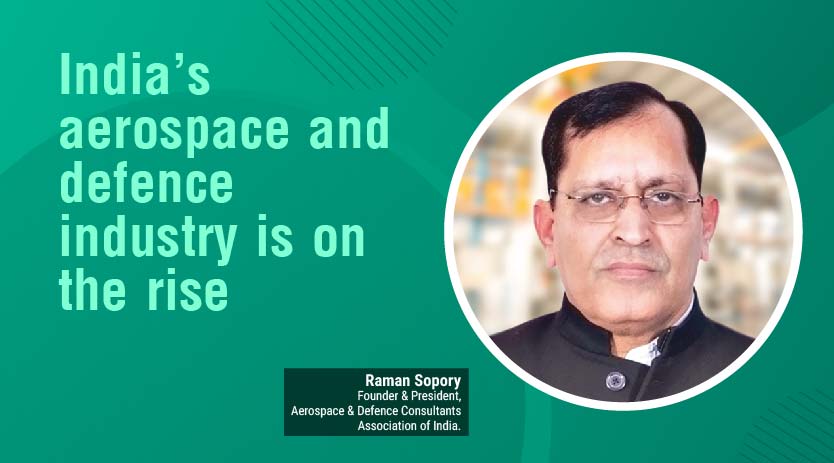In-house manufacturing automation can minimise global supply chain risks
April 1, 2022 4:51 pm
Our country is now appearing high on the list of manufacturing destinations. This change in global outlook for supply chain relocation is expected to boost India’s manufacturing.
Sharing his perspective with OEM Update about the rapid advent of digitisation, Sameer Gandhi, MD, OMRON Automation, India talked that as a part of Industry 4.0, the sector has been showing advancements around varied applications in order to help the manufacturers achieve the best out of design & energy optimisation, highest asset utilisation, big data & analytics (connected supply chains and shop floors), worker and machine safety and zero-defect production.
Digitisation helping create an intelligent manufacturing environment
One of the notable applications that digitisation has brought in is the Total Traceability Solution. It renders the ability to trace & verify the history, location, or application of an item by means of documented recorded identification. Having a close interface with IIoT, this solution holds a lot of significance for industries where assembling of multiple complex components needs constant checking at every step and product-recalls are encountered quite often.
Talking about the robotics segment here, there has been a shift from ‘hard-tooled robotic cell’ to ‘flexible integrated cell’ and from ‘Hard Coded conventional AGV with limited Flexibility’ to ‘Flexible AIV Autonomous Navigation’ owing to digitisation.
Integration of AI and machine learning
The integration is needed to bring in the best of human-machine harmony. The last few years have been manifesting many notable things that indicate the transformation the manufacturing world is undergoing. With the concept of glocalisation replacing globalisation, mass customisation is getting sidetracked with personalised manufacturing mandates. With climate changes and unprecedented situations like Covid, consumption orientation is getting replaced with sustenance orientation. Also post pandemic, the makers are now pondering over social needs, more than ever, rather than only industry and production-based needs. All this demands the I4.0 based data driven systems to do more and fetch more sustainable results by transitioning to knowledge driven systems. Hence there is a need to do more and that can be achieved when we integrate AI and machine learning to achieve harmony at all the levels: human-human, human–machine, machine-machine and vice versa.
Opportunities for adopting automation and robotics for manufacturing
Bigger manufacturers in industries like automotive, secondary packaging, FMCG, consumer electronics have made considerable progress in adopting factory automation including I4.0 based solution & robotics however, the path remains a little perplexing for micro, small and medium enterprises (MSMEs). They have a dire need for better levels for flexibility, quality and consistency, amidst challenges like limited scope of extension or modification of the shop floor space, shortage of skilled manpower, and meagre capital infusion capabilities.
Another hurdle for adoption of right automation solutions, especially in India, is the availability of a partner ecosystem. Many requirements are unique and need to be run like a small project. These require some mechanical additions or modifications to the customers’ existing setup. While larger organisations may be able to run some of these projects on their own, MSMEs usually do not have the required skill set to execute such projects. The key is to ‘Start small and think big’. Think of digitisation or flexible automation at a micro level and then go for the next step!
One of the greatest opportunities for the country is that it is now appearing high on the list of manufacturing destinations. So this change in global outlook of the country for supply chain relocation is expected to boost India’s manufacturing. The major objectives which the Make In India campaign wanted to accomplish can now become a reality. However, for this to happen, the whole manufacturing prowess has to touch newer heights in terms of all key deliverables- quality, speed, accuracy, flexibility, traceability so as to match the global standards indicating a positive sign for the rise in the adoption of digitalisation and automation.
To deal with this, the makers have to gain agility and flexibility. Automation & digitisation are the two most useful and effective tools to their rescue and they have to make the best use of them, now!
Cookie Consent
We use cookies to personalize your experience. By continuing to visit this website you agree to our Terms & Conditions, Privacy Policy and Cookie Policy.















